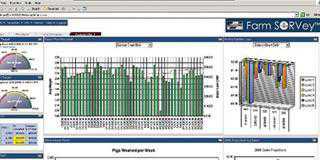
It’s a cold, wet day in June 1795 as a British fleet, with a small army of marines and soldiers on board, sails into Simon’s Town. It doesn’t take Dutch governor Abraham Sluysken long to realise that this is most certainly not a courtesy call. After a series of skirmishes between Muizenberg and Wynberg, the Dutch surrender and the Cape passes into British hands. Thus begins the real battle for land in South Africa!
READ:Exploring Steven Covey’s matrix
In The Field Guide to the Battlefields of South Africa, Nicki von der Heyde identifies no fewer than 71 battles between the arrival of the British and the end of the second Anglo-Boer war in 1902. These include indigenous, colonial and frontier confrontations, those involving the Voortrekkers, and those of the first and second Boer wars and Anglo-Zulu war.
All were ultimately about land, and Von der Heyde’s list doesn’t include the thousands of small-scale ‘neighbour versus neighbour’ conflicts over land, which continue today and sometimes lead to bloodshed. The Cape government’s Glen Grey Act of 1894 was the first legislative step taken to force people off land. The Land Act of 1913 was the second. Other racially-based laws governing property ownership followed.
The ANC government has inherited a mess and needs to sort it out. Organised agriculture is doing its best to help government find and implement practical solutions, but there’s a long way to go. Worse, the re-opening of the window period for land claims and harebrained schemes such as Minister Nkwinti’s 50/50 proposal have increased the uncertainty felt by many landowners.
Just another business risk
As with any other business risk – fire, flood or drought, for example – you can take steps to mitigate the risk associated with the land problem, and there are solutions! The primary skill of successful farmers is to manage the resources required to produce food or fibre and sell it at a price higher than its cost of production. Most of our farmers excel at this, otherwise they wouldn’t still be farming. And, yes, land is required. But is it necessary to ‘own’ it, to hold the title deed? You can farm just as successfully on land owned by someone else, and many do.
Obviously there needs to be security of tenure, such as leasehold, and this must take into account production cycles – shorter terms for seasonal crops, and longer terms for, say, tree crops. But it could be an option for you.
Leasehold
Here’s how it works. Sell the land, but keep farming and take the risk on the crop. Your landlord takes the risk on the land, and you can be assured that as long as you’re paying a fair commercial price for use of the land, he will fight alongside you to hold onto the title if threatened. If you’re unable to find a ready third party buyer for your land, transfer ‘ownership’ to a bank
by making use of its collateral value and arrange a loan to the level of its full value.
“But,” I hear you say, “this means debt” – or rather, more debt! Yes it does, but so what? As long as your cash flow enables you to service the debt, it makes financial sense to use your business’s debt capacity. Needless to say, the bank will not be
prepared to make the loan if the business cannot service the debt, so you’ll have to be a profitable business.
Now I hear you say: “But this will reduce the profits!”
Again, so what? Your shareholders will welcome the opportunity to place their cash in other ventures, and part of the cost of the debt will be shared by SARS. The major advantage for the business, here, is that the land risk is now shared with the bank, and if threatened, it will back you all the way. Well-structured debt is an important defensive strategic option to mitigate land risk.
Don’t get emotional
A last point, which brings in emotion and blurs rational decision-making, is the fact that South African farmers generally live on their farms. The farm is not only a business but a beloved home. While many will acknowledge that the business is one thing,
and their home another, it’s difficult to separate them in practice. But nothing lasts forever. You don’t have to live on your farm. I raised my family on a farm. We relocated to suburbia in a lovely Lowveld town and, while we miss the space, and often reminisce about our previous life, there are many benefits to being in town. But that’s another story.







